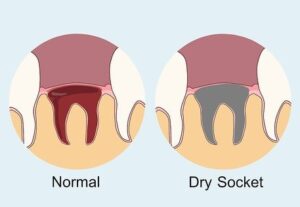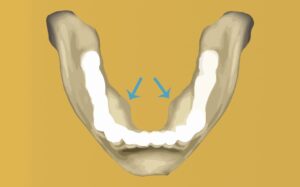What is it? | Symptoms | Causes | Treatments | Tonsillectomy | Antibiotics | Home remedies | Prevention
If you are not maintaining oral hygiene, your tonsil–a gland-like structure in the back of the throat– might develop hard white or yellow formations, called tonsil stone or tonsilloliths. It forms when food, dead cells, or other debris get trapped on the tonsil. Although it is harmless, it could cause discomfort if they grow into larger formations. It might lead to swelling of the tonsils and bad breath. Bacteria responsible for the formation of tonsil stones can also cause other oral infections, gum disease, and tooth decay. So, ignoring it for long is not advisable. Get in touch with your doctor as soon as you notice the symptoms of tonsil stones.
What is Tonsil stone?
Tonsil stones are like a lump of calcified material, accumulated in the tonsils. The exact reason for stone-like formation is not known, but experts believe oral bacteria could be the main contributor. It could vary in size from rice grain to grape, and patients with tonsil stones report a sensation of something stuck in the throat. In some cases, patients report some difficulty in swallowing and ear pain. With tonsil stone, the biggest challenge is bad breath, as calcified formation causes an unpleasant odor.
Symptoms of Tonsil Stone
Unlike other oral ailments, you won’t notice the presence of small tonsil stones as they cause no discomfort. You will notice some symptoms only when tonsil stones are big enough to affect swallowing. Some of the early signs of tonsil stone formations are:
- Bad Breath: Tonsil infection caused by the accumulation of dead cells or other debris causes severe bad breath or halitosis. An unusually high level of the volatile sulfur compound in breath could be linked to tonsil stone. If you notice your breath turning from fresh to fetid, you should better consult your oral hygienist as it could be tonsil stone.
- Sore Throat: Although a sore throat is pretty common with other types of bacterial or viral infections, it could be due to tonsil stones as well. Throat soreness normally goes away in a few days with suitable medications, but with tonsil stones, it might persist for long. If you feel consistent mild pain, you should consult an ENT specialist to get it examined.
- Dry Coughing: The presence of stone in the throat could irritate leading to regular coughing. Although coughing is very common, if it is dry and sustains for long with a feeling of something sticking in the throat, then it could be a sign of tonsil stone.
- White Debris: If it grows bigger, you may be able to see it at the back of your throat as a white calcified deposit.
- Swallowing Difficulty: If the stone is bog and located closer to the food pipe, the tonsil swelling could make swallowing food or liquid difficult and painful.
- Ear Pain: Tonsil shares nerve pathways, so the development of tonsil stones could trigger ear pain. Stone could be anywhere in your tonsil to trigger ear pain.
- Tonsil Swelling: Stuck debris hardens with time leading to stone formation. If left untreated, it could cause inflammation and swelling.
Since most of these symptoms are not specific to tonsil stone only, you might not be able to correlate them with tonsil stone. So, it is better to regularly visit your oral care expert, so that he could diagnose it early and start treatment to make your breath fresh and refreshing.
Causes of Tonsil Stone Formation
The human tonsils, a set of lymphoid organs along the aero-digestive tract, consist of two palatine tonsils, two tubal tonsils, an adenoid, and a lingual tonsil. Each tonsil, located at the rear of the throat, is composed of soft tissues, tunnels, crevices, and pits called tonsil crypts. These pockets could trap debris, like food, dead cells, saliva, and mucus, and build up. Bacteria feeding on these buildups cause bad breath. If not treated in time, the debris could harden into tonsil stone. Here are some of the common causes of tonsil stone formation:
- The most common cause is the substandard oral hygiene
- Enlarged tonsils could trap debris easily
- Chronic sinus issues
- Tonsil infection
Small tonsil stone formation is common across all age groups. Although large tonsil stone is rare, one should not ignore it for long and start treatment at the earliest as bad breath spoils your mood and relationship.
When to See a Doctor to Treat Tonsil Stone?
The moment you notice symptoms, especially when your breath turns bad, you should consult your doctor. A normal physical examination will help him find the presence of tonsil stones, but if it is hidden inside, he might recommend CT or MRI tests to spot tonsil stones in your throat. In most cases, home remedies are enough to treat tonsil stones, but if it is affecting your oral hygiene and eating habits, you should consult your doctor immediately. Following a detailed examination, he will refer you to an ENT specialist for advanced treatments.
You should see a doctor, if:
There are symptoms of tonsil stones, but not visible with the naked eye.
- Home remedies aren’t helping
- Tonsil is swollen, red, and painful
Tonsil Stone Treatments
Tonsil stones are calcified debris, so vigorous gargling with lukewarm saltwater can be removed at home. But if a tonsil stone is visible but there is no symptom, you should consult a specialist to get it removed using a suitable procedure. Some effective treatments for tonsil stones are:
Gargling
If you notice symptoms of some debris hardening on the tonsil, you can try gargling with salt water. Vigorous gargling will ease discomfort and might dislodge tonsil stones. Experts recommend using a solution prepared with 8-ounce water and half tablespoon salt for gargling. It is highly effective in changing the chemistry of the mouth, thus ensuring fresh breath, at least temporarily.
Manual Removal of Tonsil Stone
Tonsils are very delicate and soft tissues, so using anything hard to remove the stone by force could be damaging, which could cause bleeding and infection. If you want to remove tonsil stones manually, then avoid anything hard and sharp.
Experts recommend using a cotton swab to soften the areas around the stone and then soft press the tissue to dislodge the stone. However, you should be cautious in placing the cotton swab. You should place it behind the stone and then push the stone forward towards the front of the mouth. Avoid applying too much pressure, as this could damage the tonsil. However, one should avoid removing tonsil stone manually, if the stone size is bigger.
Laser Tonsil Cryptolysis
If tonsil stone is large and too hard, your doctor might remove it using the laser. The procedure, called cryptanalysis, involves eliminating the crypts so that stones could be dislodged. Your doctor will use local anesthesia to make the procedure painless.
Coblation Cryptolysis
Another effective treatment for removing tonsil stones is coblation cryptnalysis. In this procedure tonsil is reshaped using radio waves, instead of heat, to change the salt solution into charged ions. These transformed ions cut through tissue and reduce the number of crevices. This procedure is relatively comfortable, as there will not be a burning sensation. Just like laser treatment, it also requires administering local anesthesia. You will be able to resume a normal diet in a week.
Tonsillectomy
If you want to get rid of the chances of tonsil stones forever, then permanent removal of tonsils is the best possible treatment. The procedure, called a tonsillectomy, involves the removal of tonsils surgically using a traditional scalpel, coblation device, or laser.
This is effective but is rarely recommended only for severe, chronic cases of tonsil stones. It is safe but throat pain could last for several weeks with chances of infection.
Antibiotics
Since tonsil stone is all about bacterial growth, so the doctor might prescribe antibiotics to lower the count of bacteria. It works, but using antibiotics for long has its own side effects. For temporary relief, you can use antibiotics, but it won’t treat the underlying cause of tonsil stones.
Home Remedies for Tonsil Stone
Controlling bacteria counts is at the core of tonsil stone treatment. Besides medications, you can use several antibacterial and anti-inflammatory natural remedies, available easily at home to remove small tonsil stones. Some of the popular home remedies for tonsil stone are:
Vinegar: One of the most effective home remedies to dislodge tonsil stone is gargling with diluted apple cider vinegar solution. The acid composition of vinegar breaks down the calcified stone.
Garlic: Known for antifungal, antiviral, and antibacterial properties, garlic is highly effective in controlling bacterial count in the mouth. Just chew a small chunk of raw garlic for a few days, and you will feel breath transforming.
Salt Water: It is one of the most recommended home remedies as it is highly effective in controlling bacteria count, this bad breath. It helps in removing tonsil stones and treating oral wounds.
Besides these home remedies, oral care experts recommend eating yogurt, apples, carrots, and onions to control bacteria in the mouth. All these treatments are effective for removing small tonsil stones, but if your tonsil stone is big and there are no symptoms, then you should better consult a specialist to get it removed using a suitable procedure.
How to Prevent Tonsil Stone Formation?
Oral space is very soft and delicate, thus very prone to bacterial infection. So, even if you have successfully removed tonsil stone, it might recur. Fortunately, you can prevent tonsil stone formation by following these simple steps:
- Keep your oral space healthy by practicing standard oral hygiene.
- Brush your teeth using quality toothpaste and floss regularly. Don’t forget to clean your tongue using a suitable tool
- Gargle regularly with saltwater
- Quit smoking
- Keep yourself hydrated by drinking enough water daily
- Eat antibacterial, anti-inflammatory, and probiotic food to control bacteria growth
Outlook
Tonsil stones are common, but thankfully it is not contagious. The calcified debris makes your breath bad, so it could affect your social engagements. People notice symptoms pretty early, but since it won’t cause much discomfort they usually ignore it. Ignoring it for long could be problematic as you have to get it removed surgically, which could be painful. Maintain oral hygiene and visit your doctor regularly to prevent tonsil stone formation.
Sources:
- Stelter, Klaus (2014). “Tonsillitis and sore throat in children.”
https://www.ncbi.nlm.nih.gov/pmc/articles/pmc4273168/ - Ferguson, Matthew, Murat Aydin, and Joseph Mickel (2014). “Halitosis and the tonsils: a review of management.”
https://journals.sagepub.com/doi/abs/10.1177/0194599814544881 - Ibkhatra, Islam Salem. “Tonsil Stones.” (2018)
http://dr.limu.edu.ly/bitstream/handle/123456789/252/Unusual%20stones.pdf?sequence=1&isAllowed=y - Kmucha, Steven. “Tonsillitis: Symptoms, Treatment, and Complications.”
https://www.emedihealth.com/tonsillitis-causes.html



